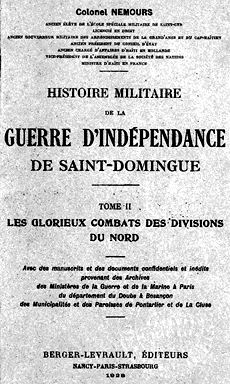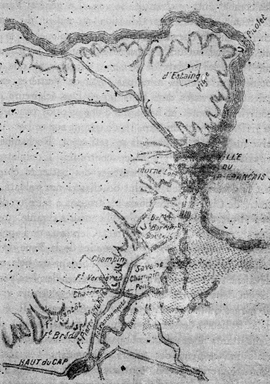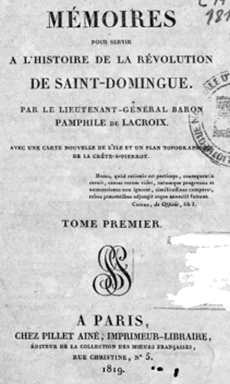"The Battle of Vertières" by C.L.R. James (1901-1989)
An excerpt from James’s The Black Jacobins: Toussaint L’Ouverture and the Saint Domingo Revolution (1963). James was an Afro-Trinidadian historian and intellectual. In his book, he portrayed the Haitians as black Jacobins who overthrew the planter class and European imperialism. A notably romantic story, his book was inspired in part by Marxism and decolonization in Africa.
In December a rumour had spread among the French that the blacks and mulattoes were not fighting for independence because they still carried the French colours. To end this Dessalines summoned a conference at Arcahaye. From the red, white and blue of the tricolour [French flag], the white was removed, and instead of the initials R.F. (République Française), "Liberty or Death" was inscribed.
A few weeks after the Arcahaye Conference San Domingo learned that the war between Britain and France had begun again: Rochambeau was cut off by the British fleet.
On November 16th the blacks and Mulattoes concentrated for a last attack on Le Cap, and the strongly fortified posts surrounding it. Clairveaux, the Mulatto was in command, and with him was Capois Death, a Negro officer, so called on account of his bravery. From early morning the national army attacked.
A bullet knocked over Capois’ horse. Boiling with rage he scrambled up and, making a gesture of contempt with his sword, he continued the advance. "Forward, forward!" The French, who had fought on so many fields, had never seen fighting like this. From all sides came a storm of shouts…. Dessalines, the local leader, was stationed on a neighbouring hill. Himself known as the bravest of the brave, even he was overcome at the spirit of Capois and his men.
A sudden torrential rain stopped the fighting. But it was the end. That night Rochambeau held a council of war and decided to evacuate the island…. Dessalines warned him that if he did not clear out at once his ships would be bombarded with red-hot shot…. Rochambeau had no alternative but to surrender to the British. Of 60,000 soldiers and sailors who had sailed from France nearly all had perished, and the few who remained were to rot and waste for years in English prisons.


